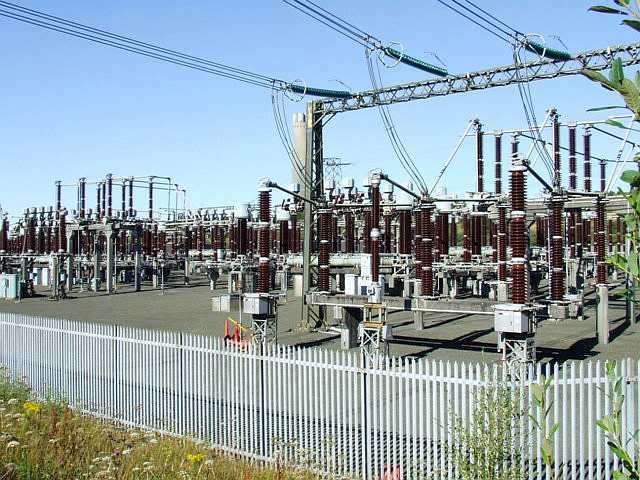Being appointed CEO of the Africa Mini-grids Association earlier this year felt very much like a natural transition for Jessica Stephens in her quest to make electricity available to all.
In an interview with ESI Africa, Jessica Stephens spoke about the association and the sector in general. She was the first employee when AMDA was founded by minigrid developers in East Africa. Former CEO Aaron Leopold and her built AMDA over the last three years and he stepped down as CEO in early 2021 to work specifically on productive use of energy.
“It was just the two of us. He brought AMDA onto the global stage in a way I couldn’t. His passion for minigrids is tangible, he is driven by poverty alleviation and productive use of energy,” says Stephens remembering the early days.
Stephens herself is more focused on the concept of electrification in and of itself, but she points out the goal of AMDA does not shift now that she’s in charge. “The goal is to create an environment that allows for scaled electrification,” she reiterated.
Going forward she can see AMDA will also focus on research and they are already starting the data collection side of setting up a second round of benchmarking. Their inaugural Africa Minigrid Benchmark Report was launched in 2020.
AMDA is not a research organisation though, but an advocacy institution. While the minigrid space is a tricky one to work in because of the way energy provision is politicised around the world, Stephens says concentrating on the basic idea of “how do we electrify the most people with the best quality service at the lowest price for all” is what keeps her going.
Her vision is not for AMDA to connect everyone in Africa to a minigrid, it’s to connect everyone to electricity, with the highest level of service. “And, it’s using all the tools in our belt to make sure people receive energy.”
Three years into its existence AMDA is expanding but in the long term Stephens has a secret wish that the association would actually work itself out of existence, “if we do our job well”.

ESI Africa in conversation with Jessica Stephens
It’s time to rewrite your social media profile – what do you want to tell the world about who you are?’
Honestly, my engagement and use of social media are extremely limited. I am a deeply private person but if I might tell something to the world about who I am, I would say that I am passionate about electrifying Africa and I believe that this will only be achieved if the centralised and decentralised utilities work collaboratively rather than seeing each other as competitors. I am deeply focused on trying to build energy infrastructure that reflects the challenges of tomorrow and not the needs of the 20th century and privately trying to enjoy my family and the beauty in the world around me.
How has COVID-19 affected your work and how the organisation will operate in the future?
While COVID-19 has impacted everyone, the impact on AMDA as an organisation has been minimal. The largest impact has actually been the limitation in travelling and how that impacts an organisation that has teams in six countries and works with more than a dozen governments. The larger impact has been on minigrid developers themselves and their customers. COVID-19 has delayed the development of minigrids, from site acquisition all the way through to commissioning. There are delays in procurement and in getting to a financial close on projects. The effects of all of these delays are multifaceted, however, the end result is few people got connected in 2020.
How has this changed the way the power and energy sector should factor in crises?
As with everything COVID-19 related, the crisis has highlighted existing structural problems and inequalities. I can’t speak to how larger utilities should address future crises, however, I must recognise that there is an urgent need to think of a recovery strategy that ensures equality in supporting both national and private utility companies if we are looking to reach the universal electrification goal by 2030.
What project are so proud of you don’t mind forevermore being associated with it.
My career has been riddled with as many disappointments and failures as successes. It’s too early to answer this question. While there are many things that I am proud of, they will only really matter if we are able to successfully scale minigrids across Africa. Ask me again in five years and hopefully, I will have a better answer.
Who were your mentors and how did they inspire you in your career? As a mentor, what is the most important thing you would pass on to your mentee/s?
I haven’t had the luxury of many mentors in my life. The non-traditional professional path that I took and the remoteness of my early working life wasn’t conducive to finding and building relationships with mentors. What I have in lieu of mentors is an incredible group of professional friends in a variety of sectors. We provide each other advice, support and expertise, they are amazing sounding boards during challenging professional situations and for more mundane expertise or support.
I think the most important thing you can provide someone, whether peer or mentee, is the soft landing and a strategic conversation in the wake of failure. We learn more from failure than success and the ability to bounce back from our failures and mistakes is what makes us resilient and better adapted to more complex work.

What trends are delivering change to the power and energy market, and what challenges and opportunities are arising from these developments?
Decentralised energy, particularly renewable-based decentralised energy is the future of energy (irrespective of the market). Within the context of the African Market specifically, there are over 600 million people without power, a continent of non-solvent utilities and unstable power supply in virtually every city in sub-Saharan Africa. Decentralised renewables, particularly hydro and solar PV minigrids are the fastest and cheapest way to provide reliable, stable, power to the unelectrified.
The biggest challenge here is the entrenched interests of existing utilities and the political complexity of privately-owned distribution companies. However, if we can move beyond entrenched interests then we have a real ability to get power to the rest of the continent while allowing existing utilities to shore up their existing operations.
Imagine what the economy of Tanzania or Nigeria would look like if the existing utilities stopped expanding their grids and instead improved the transmission and distribution (T&D) systems in their cities? Imagine power provision in cities that look like Europe or the US, manufacturing could actually take off then! And at the same time, minigrids could power the harder to reach areas with systems that require minimal O&M and that operate independently.
The solutions here aren’t revolutionary nor are they that complex. They just require a little bit of will to achieve.
In an ideal world, you are president of the world’s biggest funder of electricity projects in Africa. What is your first priority?
Holding utilities accountable to ensure a high service level to cities and industrial production. Right now we are on the path to having more power than can be evacuated and consumed on the African continent. Every country has a plan to sell power to its neighbour and has invested massively into generation projects that are going to lead to oversupply.
At the same time, we are seeing T&D losses upwards of 25% in some countries and cities that can only provide power 80% of the time. We have a massive problem maintaining the T&D infrastructure and no real plan to improve supply and service. We need to reinvest in service delivery and utilities need to refocus on their customers.
What industry outside of the power and energy sector are you looking at for inspiration? Why has this industry caught your attention?
The reason that decentralised renewable energy is so interesting to me is two-fold. First, it is a challenging problem to fix and I enjoy the challenge of addressing a global problem.
The second is climate change. Building out decentralised renewables in currently unelectrified places is one of the few areas that we can proactively address climate change. We aren’t trying to undo the damage, rather we are trying to build the energy system of the future that is accounting for the climate risk in the development of infrastructure. If we connect the close to a billion unelectrified people with non-renewable energy, we will have missed a massive opportunity to ‘fix’ a problem before it is actually an issue.
Addressing climate change is the single most important challenge of our time and it is impossible to work in energy and not look to the broader climate sector to anchor inspiration and hope.
Beyond Climate and Energy, Psychology and Behavioral Economics are critical in my thinking about an energy transition. So many of the solutions to global problems are policy and economic questions. “How do we make it more financially advantageous for a farmer at the edge of the Amazon to protect the trees than to cut them down for additional farmland?” “How do we finance the transition to renewables without adding to the debt burden of developing countries?” “How do we make politicians and decision-makers care about their less influential and wealthy constituents and make sure that they have access to the same resources as the rest of the constituent base?”
If you could wish away a challenge to your organisation or the industry as a whole, what would it be?
I would wish for the ability of national governments to appropriately subsidise their energy infrastructure (and their infrastructure more generally). Energy everywhere is subsidised and always has been. However, across Africa, it is often foreign money that is subsidising energy systems. This creates strange incentive structures and a lack of accountability to actually build sustainable energy infrastructure that provides quality service.
If you had the opportunity to meet someone famous, who would it be? Why that person and what would you talk about?
Saul Griffith. Listening to Saul Griffith talk about climate change and what it would take to address this global problem is inspiring. He is one of the few that effectively breaks down the problems into solvable components. So much of what needs to happen is (relatively easily) solvable with the political and financial will.
Most of the technology that we need to make radical strides already exists, what we need is the political and financial will to execute. I would love to have a coffee (can I say whiskey) with him and I desperately wish that decision-makers across the globe were paying more attention to innovators like Saul Griffith.







